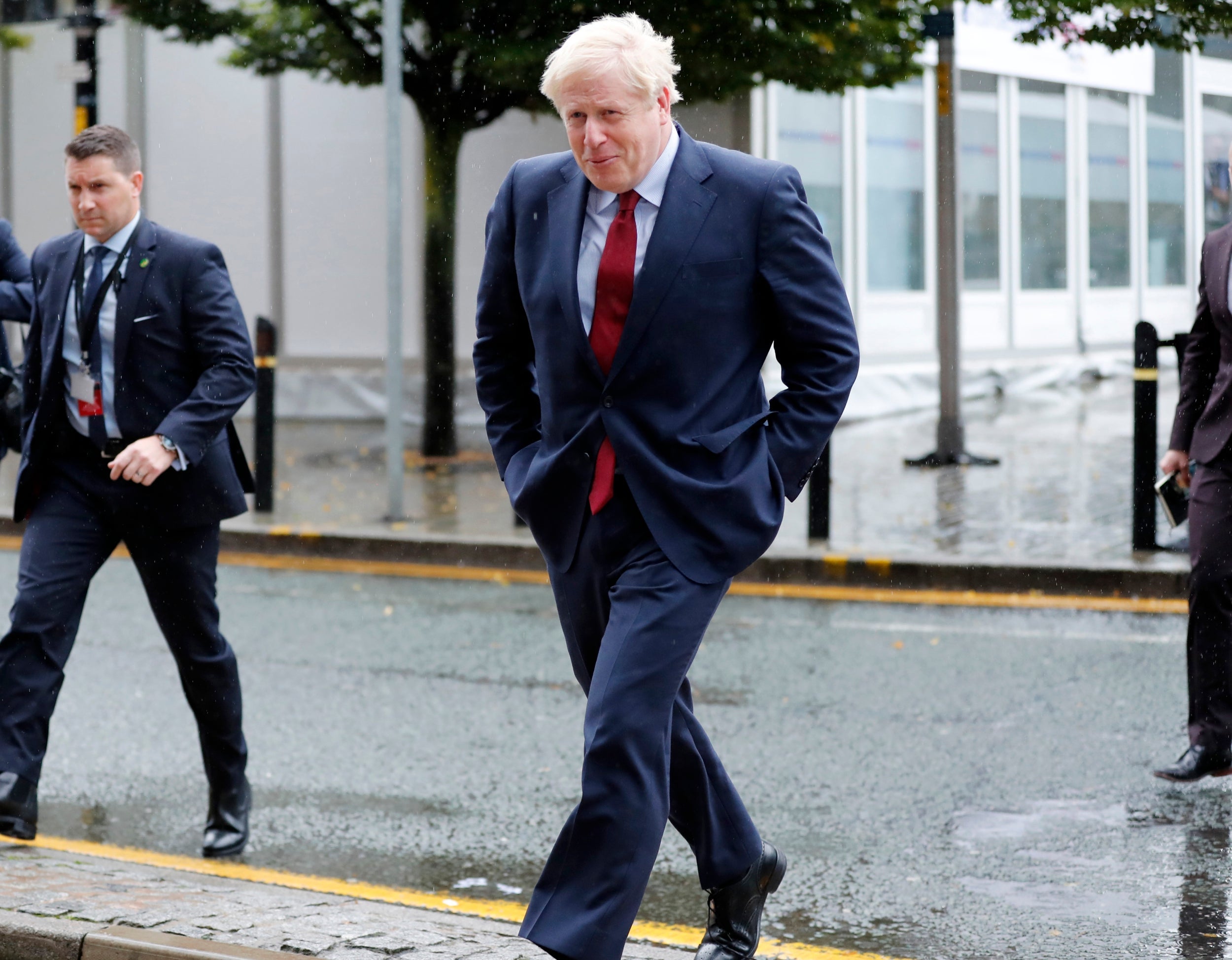Brexit: Boris Johnson insists border plan will not require physical checks in Northern Ireland
Prime minister says the 'moment of truth' is approaching for his Brexit plan, but admits there are 'hard yards' ahead
Your support helps us to tell the story
From reproductive rights to climate change to Big Tech, The Independent is on the ground when the story is developing. Whether it's investigating the financials of Elon Musk's pro-Trump PAC or producing our latest documentary, 'The A Word', which shines a light on the American women fighting for reproductive rights, we know how important it is to parse out the facts from the messaging.
At such a critical moment in US history, we need reporters on the ground. Your donation allows us to keep sending journalists to speak to both sides of the story.
The Independent is trusted by Americans across the entire political spectrum. And unlike many other quality news outlets, we choose not to lock Americans out of our reporting and analysis with paywalls. We believe quality journalism should be available to everyone, paid for by those who can afford it.
Your support makes all the difference.Boris Johnson has vowed that his Brexit plan will not require physical checkpoints anywhere in Northern Ireland, after Dublin reacted with horror to proposals for a line of customs processing centres 5-10 miles from the border.
But the prime minister acknowledged customs checks of some sort will be required on both sides of the Irish border once the UK has left the EU customs union, in a shift away from predecessor Theresa May’s promise to avoid new checks and controls to preserve the Northern Ireland peace process.
With the text of the UK’s proposals to be submitted to Brussels by the end of this week, Mr Johnson said that the “moment of truth” for his Brexit ambitions has arrived. He said he had a “solution” to the outstanding issue of the Irish border, but admitted there would be “hard yards ahead” in final negotiations ahead of a crunch Brussels summit on 17 October.
The prime minister said he had made “big concessions” to the EU in areas such as an all-Ireland regulatory zone for agriculture and food products.
Reports suggest the EU chief negotiator Michel Barnier indicated to Brexit secretary Stephen Barclay last week that he was willing to talk about the issue of “governance”, raising hopes that common ground might be reachable on issues like a role for Stormont in agreeing future regulations on manufactured goods.
This would leave customs as the thorniest issue yet to be resolved.
The proposal for checkpoints some miles away from the border on both sides appears to have been floated in a UK discussion document – known to officials as a ‘non-paper – which was leaked to the Irish media on Monday.
The Republic’s foreign minister Simon Coveney today dismissed the idea as a “non-starter”, declaring: “Ireland deserves better.”
Fianna Fail said it was “clearly not a satisfactory alternative” to the controversial backstop, which Mr Johnson has said must be removed from the withdrawal agreement. And Sinn Fein leader Mary Lou McDonald said it was an attempt to “reimpose a hard border” and “further evidence of Tory recklessness and belligerence towards Ireland.”
Mr Johnson hastily backed away from idea, saying that creating border posts away from the border was “certainly not something that we want to do”.
In a series of broadcast interviews at the Conservative conference in Manchester, the PM said: “What you have to recognise is if the UK has to come out of the customs union, as it must – and that’s the right thing for us to do, to actually take advantage of Brexit – then the whole of the UK has got to come out.
“And in those circumstances then the EU itself insists on some checks. What we are saying is those checks don’t need to take place at the border, they don’t need to necessitate, they don’t need to involve, new infrastructure. But you must – and this where rubber hits road – have checks of some kind.”
He added: “It may be it that it will be necessary to have a relationship between the dispatchers and the receivers, between the exporters and the importers, where there are checks at either end. That I don’t think will be onerous, it certainly wouldn’t involve infrastructure, but there might be ways to do it.”
He said it was “absolutely correct” that the position was a shift from Ms May’s stance, adding: “The reality is … you have to accept that there’s got to be a change.”

Mr Johnson insisted that he had not asked fellow EU leaders to rule out an extension to Brexit negotiations beyond 31 October, as a means of getting around a law passed by the Commons last month which requires him to seek a delay if he cannot strike a deal within the next 18 days.
“We haven’t done any such thing so far,” he said. “But I don’t think that our friends really want us to stay in beyond 31 October. That’s not where they are, where we are. Let’s get it done.”

Join our commenting forum
Join thought-provoking conversations, follow other Independent readers and see their replies
Comments